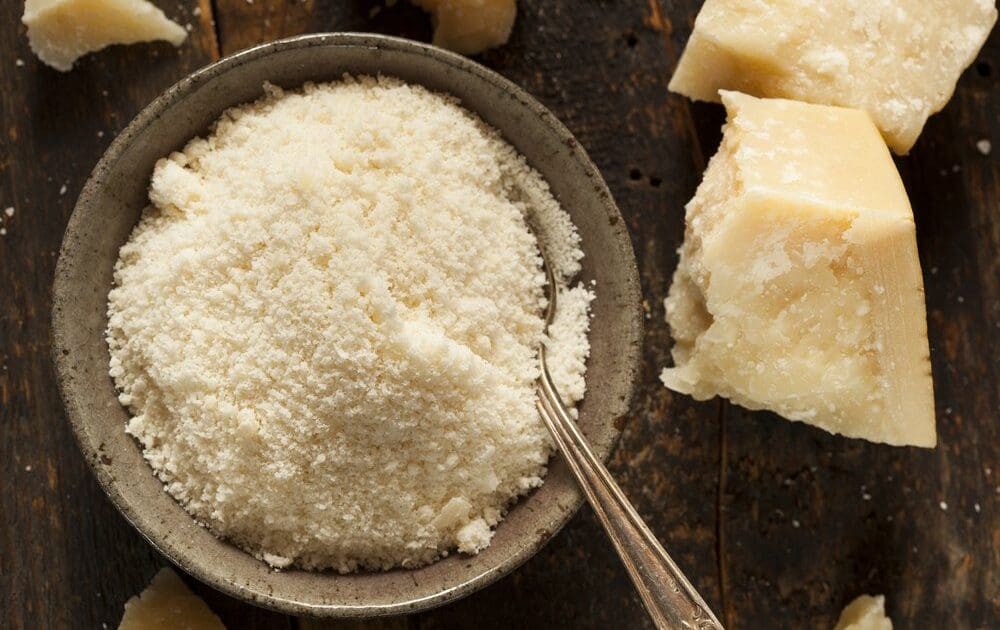Grated Parmesan Cheese Actually Made of Wood Pulp Marketed as ‘100% Real Cheese’

One more reason not to buy “Parmesan” cheese in a can has surfaced, as Bloomberg reported cans of “100 percent real” grated Parmesan cheese were being doctored with cheaper substitutes and fillers, including wood pulp.
This discovery began in 2012, when the FDA investigated Castle Cheese Inc. in Pennsylvania after receiving a tip that the cheese product sold by the company wasn’t what it seemed.
The results of the FDA investigation showed that too much cellulose, a common anti-clumping agent derived from wood pulp, was being added to the cheese. While cellulose is permitted in these products, the accepted level is between 2 and 4 percent, Dean Sommer, a cheese technologist at the Center for Dairy Research in Madison, Wisconsin told Bloomberg. Castle allegedly surpassed this percentage, though the FDA did not release the exact amount of cellulose in Castle’s cheese.
But Castle was not the only offender. Bloomberg tested other store-brand grated Parmesan cheese via an independent laboratory and found that Essential Everyday 100% Grated Parmesan cheese contained 8.8 percent cellulose, while Wal-Mart Stores Inc.’s Great Value 100% Grated Parmesan Cheese contained 7.8 percent cellulose. Even Whole Foods 365 brand, which does not list cellulose as an ingredient, still tested at .2 percent cellulose. According to other tests of 28 different brands of grated Parmesan cheese carried out by DairiConcepts, a subsidiary of Dairy Farmers of America, most brands were lying about the protein content in their cheese, something likely linked to extra cellulose being added.
The FDA’s report on Castle showed that “no Parmesan cheese was used to manufacture” the Market Pantry brand 100% grated Parmesan Cheese. Other ways that cheese companies, including Castle, have been skating around the “100 percent” promise is in including cheaper cheeses, such as cheddar, Swiss, or mozzarella to bulk up their cheese product and cut costs, Bloomberg reports.
Castle filed for bankruptcy in 2013, and former Castle President Michelle Myrter is scheduled to plead guilty to criminal charges this month, facing up to a year in prison and a fine of $100,000.
Arthur Schuman, owner of Arthur Schuman Inc., the biggest seller of hard Italian cheeses in the U.S., told Bloomberg that approximately 20 percent of U.S.-produced Parmesan cheese is mislabeled.
“The tipping point was grated cheese, where less than 40 percent of the product was actually a cheese product,” Schuman said. “Consumers are innocent, and they’re not getting what they bargained for. And that’s just wrong.”
According to the Chicago Tribune, much of the problem stems from the fact that the criteria for the American Parmesan label were established in the 1950s and include, amongst other things, that it cannot contain more than 32 percent moisture and must have both a “granular texture” and a “hard and brittle rind.” These criteria are not nearly as strict as those for true Italian Parmigiano Reggiano.
Authentic Parmigiano Reggiano is sold in 75-pound wheels, aged at least one year, and must be produced in the geographic region of Emilia-Romagna.
The full Italian name of the cheese was granted protection in the U.S. in 2012, but Parmesan is still not protected in the states, despite European courts decreeing in 2008 that Parmigiano-Reggiano is the only hard cheese that can legally be called Parmesan. The Parmigiano Reggiano Consortium asked the EU to make efforts to protect its manufacturers in December, though the term has yet to be removed from U.S.-produced cheeses or cheese foods.
Related on Organic Authority
Gag Me with Kraft Singles? Processed Cheese Slices Recalled Over Choking Risk
Kraft Foods to Remove Artificial Colors and Preservatives From Its Mac & Cheese
The Absolute Best Cheese for Grilled Cheese, Mac and Cheese, and Fondue
“>The Absolute Best Cheese for Grilled Cheese, Mac and Cheese, and Fondue
Grated parmesan cheese image via Shutterstock

